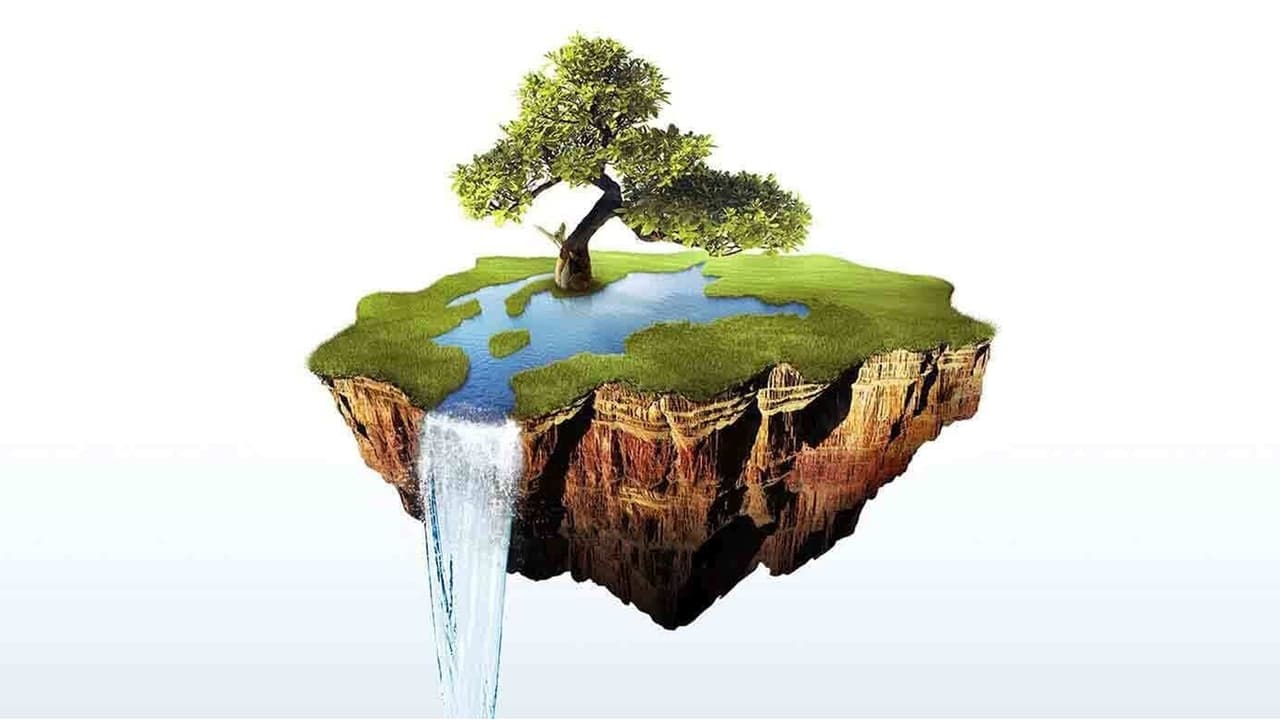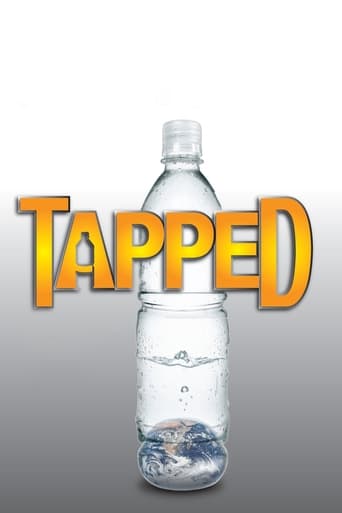Huievest
Instead, you get a movie that's enjoyable enough, but leaves you feeling like it could have been much, much more.
AshUnow
This is a small, humorous movie in some ways, but it has a huge heart. What a nice experience.
Nicolas
Ok... Let's be honest. It cannot be the best movie but is quite enjoyable. The movie has the potential to develop a great plot for future movies
Cristal
The movie really just wants to entertain people.
teaparty_man
Being in the bottled water industry, the misinformation spewed out by the people who made this propaganda piece is simply unbelievable and you have to suspend all logic to buy into the hysteria.1.) bottled water IS regulated by "truth in labeling" laws; it must be what the label says it is. Spring water from a "certified spring", purified water must measure 10 parts per million or less of ANYTHING in the water, distilled, etc.2.) they fail to mention why BPA is used in the bottles or in any plastic: to strengthen and keep the bottles from failing part. I've seen bottles over 20 years old, just as solid as the day made. So how can all this horrible chemical be "leaching" out of the container.3.) the overwhelming majority of bottled water is consumed out of bottles that do not contain BPA, they are PETE bottles, no BPA involved.4.) In another anti plastic movie, Plastic Paradise, the cute little Asian chick wants to demonstrate how horrible it is to drink out of plastic bottles, because of the horrific dangers of BPA. SOOOOO, she gets a blood test done to measure her currant BPA levels, THEN she handles a THERMAL STORE RECEIPT, then gets another blood test. Unh? What? Wait a minute. Why doesn't she drink out of a plastic bottle? Because the majority of BPA in people comes from other sources far more insidious than plastic water bottles. Another documentary goes further by locating people who have NEVER drank bottled water and yet they have elevated levels of BPA in their systems.5.) The FDA (the GUVMINT) is trying to kill us by NOT banning BPA, the GUVMINT allows the chemical companies to kill us with pollution from oil and bottle making processes, but we are to trust the GUVMINT when they send tap water to your house? I mean they put CHLORINE in the stuff to KILL THINGS!! But THAT'S OK to drink because the GUVMINT says so? No thanks. I'll stick to drinking bottled water from reliable sources.Ask yourself, where does Coke (Dasani) and Pepsi Aquafina) get the water for their soda? And how come it tastes consistently the same from coast to coast, given that over 700 different containment are found in tap water across the country? Do you really believe they would allow the nasty water say in LA spoil the taste of their magic formulas for their products? Reverse Osmosis is what they use amongst other processes, to make sure the water is a neutral as possible.Just do you homework. In many areas there are water stores, that process city water through Reverse Osmosis filtration systems that remove virtually all contaminants from the water.The GUVMINT and a lot of these "enviro-nazis" are in bed together more than you realize and do not want you to drink bottled water. Period.
jzappa
This enlightening, competently investigated and imperative documentary with a fantastic opening titles sequence seizes the various health and environmental concerns associated with the privatization of water. Bottled water corporations make masses of proceeds every year, but are they entitled to exhaust a small town's water supply without previous permission and without restoring it? Fryebyrg, Maine, endured a water famine while, in tandem, Coca-Cola continued to pump their already deficient supply. It's revealed that the bottled water industry is unregulated and causes health hazards. Tap water, however, is thoroughly regulated. Municipalities test water for toxins nonstop every day.Director Stephanie Soechtig jabs acutely at the predicament of water with specific and vital insights, eschewing disproportionate use of talking heads. For instance, I feel like I should've already known that the Pacific has a portion overflowing with plastic. Numerous corporations employ the chemical BPA to make their bottles, a neurotoxin that potentially causes various neurological disorders. There's no denying that any and every form of growth are all endangered when science and law mingle with misinformation and materialism. At least documentaries like Tapped appear every so often to nurture awareness, to notify the people and clear the daze of party lines. Whether or not Tapped will help to heal the public's indifference toward progress and environmental causes is a different affair.Tapped does to bottled water manufacturing what Food, Inc. and Super Size Me did to food monopolies. It's an exposé of champion reporting. Some will likely put the propaganda label on Tapped however, and one could split those hairs, insomuch as it's predisposed to a certain alliance. But the information is indisputable, unlike the propaganda of today that functions to make us believe what its makers don't believe themselves. Tapped joins the crusade to battle corporate Goliaths who have milked local water supplies to sell it in toxic bottles, sometimes during droughts that constrain towns to rigorously limit their own water use.We're first brought to Fryeburg, where one day, their standard of living is as it's been for generations, and the next day enormous trucks roll in. Without any prior communication, Nestle just silently procured land to tap for water, and since then they've been rolling those trucks in and out, extracting from the local spring but paying no taxes to recover the community. And unlike other trades, they're not even required to purchase resources to make their product, save for those plastic bottles, made by petroleum factories with cancer-causing constituents.All effective modern documentaries seem to need statistical facts presented in graphic design effects to give their allegations a source. And in an age of instant gratification, they must. Conservative Libertarians want to know what's wrong with someone making a buck? Well, just 1% of the water that envelops 75% of the planet is drinkable. A year before this documentary was finished, there was a drought in 35 of 50 States. No water, no life. The first words said in Tapped are, "By 2030, two-thirds of the world will not have access to clean drinking water."During a Raleigh drought, Pepsi kept hauling over 400,000 gallons a day. How are such reckless actions possible in a democracy? Well, the FDA, we gather from intense footage of Senate hearings, relies on tests run by the companies themselves! Meanwhile, one FDA pen-pusher is accountable for supervision of the entire industry. Put in close-up and faced with facts, we ultimately even hear the FDA publicist telling Soechtig that if he'd known this was the course the interview was to take, he wouldn't have agreed to grant the interview. Why does the FDA even need a publicist?A visit to Corpus Christi familiarizes us with residents who live within miles of the factory producing the plastic bottles used by the big three water manufacturers. All have health troubles. The more you watch, the more scared and livid you become. American industry has been reduced to a criminal kingdom over the last thirty years, but the bottled water industry has clearly avoided greater scrutiny. Hopefully, that's changing. It all boils down to water as a rudimentary birthright, a raw material owned by us all. If you begin commodifying bare essentials of life in such a way as to make it harder for people to get to them, you have the footing for grave political volatility.
legendlength
When I first came across this film on IMDb I was 90% sure it was going to be another biased documentary which was rated highly because of people agreeing with the position they took. But after reading the reviews that swore it was very unbiased and well-made I decided to watch it with interest.After viewing the first 10 minutes I could tell the reviews were absolutely wrong. This film is probably as biased as you could possibly get. Throughout the rest of the film one side is shown and the other constantly demonized.If you like to view both sides of an argument avoid this rubbish.
Lara Call
I saw this screened at RIFF yesterday and was bowled over by the quality of this documentary. I will freely admit that I had less than little interest in the topic of bottled water when I sat down in the theatre; by the time this documentary had concluded I honestly felt I had learned a life-changing lesson. Yes, it really is that good.The cinematography is gorgeous. The sleek, concise presentation of fact upon fact kept me riveted - and as the point of a documentary is to inform, 'Tapped' achieved its purpose admirably.I would recommend this documentary to anyone who has more than a passing interest in their personal health and that of their loved ones; any feeling of social responsibility for the welfare of their fellow Americans; and anybody who has ever been outraged by the casual exploitation of natural resources by morally bankrupt corporate giants.I'm actually a die-hard capitalist (I've never hugged tree; doubt I ever will) but this documentary made me really angry.I also recommend 'Tapped' as a learning resource for any aspiring documentarians out there - this is how it should be done: a compelling, well-balanced argument, extraordinary supporting evidence, imaginative presentation and truly beautiful camera-work.I've never given a documentary 10/10 in my life, but this was the highlight of the Film Festival. Excellent!

